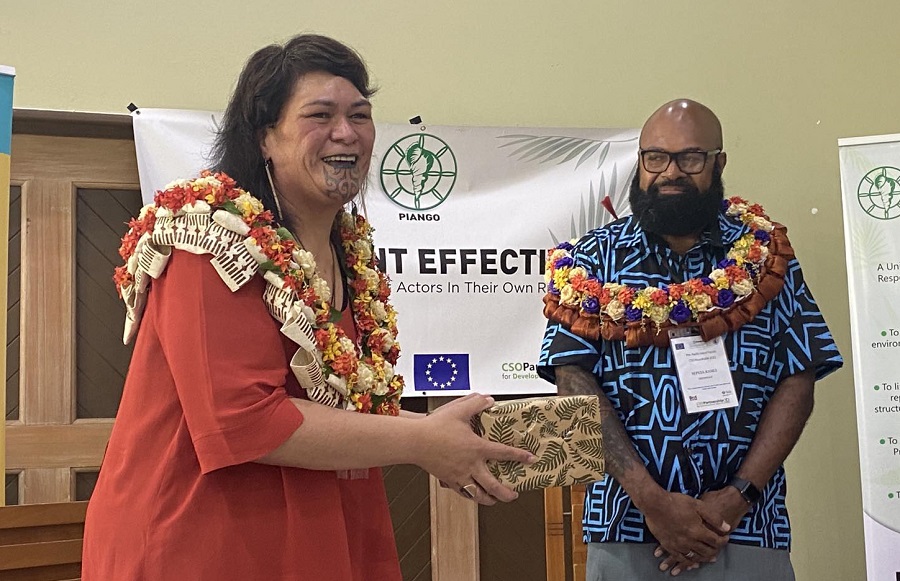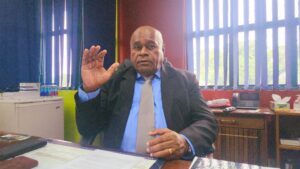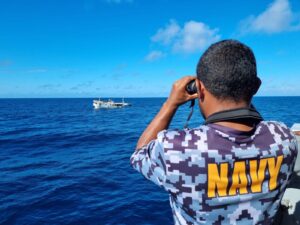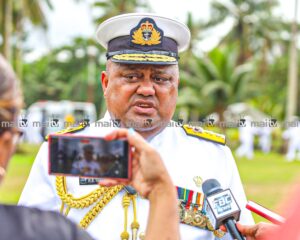As Forum leaders continue their deliberations at the Grand Pacific Hotel in Suva today, about a two-minute drive away regional civil society organisations (CSOs) convened to finalise their presentation to the heads of the regional grouping tomorrow with a timely reminder from acting PIANGO chair Sepesa Rasili to keep the needs of the people of the Pacific at the heart of their submission.
Rasili told fellow CSO colleagues that they owe it to the future generations to ensure that decisions by leaders including the new strategy expected to be considered by Forum leaders in two days’ time speak to the needs of the people of the Pacific.
The 2050 Strategy for the Blue Pacific Continent as with previous frameworks, Rasili says because the impact of which will be inherited by the future of the Pacific thus the opportunity tomorrow provides them a space to further amplify their voices and “play a role to secure [the] region’s future against the challenges of today and the coming decades, to achieve a free, safe and prosperous region.”
“As CSO actors, we are development actors in our own right thereby complementing the role of our Pacific Islands governments in the implementation of the 2050 Strategy. It is our key role as civil society actors to ensure that any regional architecture is in line with the principles of development effectiveness; that focuses on ownership – the 2050 Strategy is also owned by the CSO sector; focus on results – ensuring that the regional architecture and its implementation has a sustainable impact; partnerships – the need for any regional architecture to ensure the genuine participation and engagement of all actors as we all play a complementary role, and transparency and shared responsibility – in that any regional architecture must be transparent and accountable to all citizens.”
In opening the CSO pre-PIFS discussion, New Zealand’s Minister for Foreign Affairs Nanaia Mahuta paid tribute to the work they do, recognising that they are a strong backbone of many country’s responses because of their work with people in the grassroots, knowing how to reach out and where the vulnerabilities are and the likes.
“Your perspective is unique, your input is essential, and your voices have contributed to a strong and ambitious guiding document that we can all be proud of,” Mahuta said. “Governments may not have all the solutions but through collaboration with CSOs it will be a bit better because it will be centered on collective action.”
“The Strategy is not one simply for Governments or for authorities, it is a strategy for our people that reflects our past, our present and our future; it is a Strategy centred on shared commitments and collective action. Importantly, we must recognise the value that can be generated when all stakeholders are equipped and empowered to support each other to achieve our shared ambition, there is simply no other way forward.
“Whether your work pertains to political leadership and regionalism, people-centred development, peace and security, resources and economic development, climate change and disasters, oceans and environment or technology and connectivity, we must all see ourselves, our organisations and our contribution within the framework of the 2050 Strategy as our new, premier strategic document for our future.”
The regional CSOs have been keeping a close watch on the happenings this week, not only hoping for a commitment and recommitment to the 2050 Strategy for the Blue Pacific Continent Agreement but in particular, their role in the strategy’s implementation, in a proactive approach Mahuta was heartened by.









